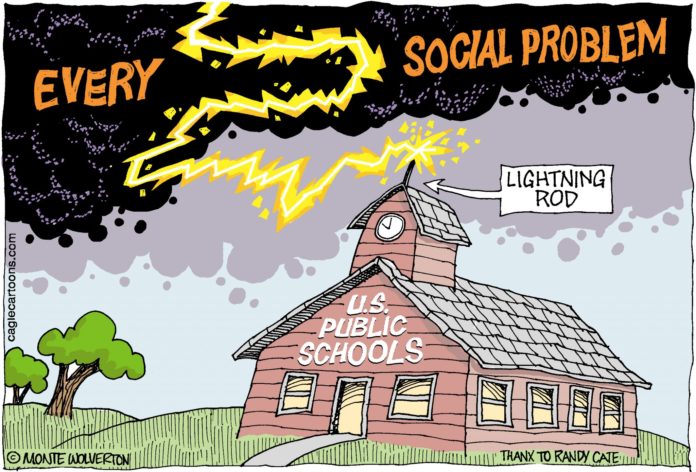BY DAVID PERRYMAN
 “Do you hear the people sing, lost in the valley of the night? It is the music of a people who are climbing to the light.”
“Do you hear the people sing, lost in the valley of the night? It is the music of a people who are climbing to the light.”
Long before the Russell Crowe movie and long before it’s 16 year run on Broadway, Les Misérables was a book; a powerful book about the dark consequences of ignorance and poverty and about truth, integrity and personal responsibility.
Les Misérables was written over 150 years ago by Victor Hugo who said to his publisher that he did not know if it would be read by everyone, but that it was written for everyone. His intent was to publish a novel resulting in comfort to victims of social inequality.
He dreamed that “wherever men go in ignorance or despair, wherever women sell themselves for bread, wherever children lack a book to learn from or a warm hearth” that the book would give hope to the downtrodden and also spur the fortunate to recognize the virtue and value of fulfilling civic and social responsibility toward mankind.
Today, we live in a world that we like to believe has overcome the harsh consequences of poverty and social inequality. We claim to live in civilized countries with social safety nets adequate to lift everyone from the grip of ignorance, pestilence and hunger.
Unfortunately, ignorance and despair persist. Tragically crimes are sometimes committed in pursuit of subsistence. Children who yearn for food and knowledge learn through early personal experience that the absence of one is a lifelong impediment in the struggle for the other.
Educational systems are complex organizations. There is little consensus about the role public education should play in the lives of students. There are divergent views on curricular content and extracurricular activities.
It is often politically expedient to isolate one aspect of our educational institutions as the scapegoat for a failing society. Allegations of overpaid administrators, lazy teachers, unsupportive parents and children who are not accountable run the gamut of what is wrong with our schools.
Possibly there are overpaid administrators. Lazy teachers may exist. It is true that when parents are engaged in the learning process and assist in holding their children accountable, the result is higher student achievement.
Public Education, like all institutions, must continually self-evaluate and identify ways to improve the delivery of its product. Public educators should always remember that the beneficiaries of education are not just the students, but society as a whole. Society must never forget that because everyone benefits from an educated society, public education as a component of the state and federal budget must not be rendered ineffective through budgetary slashing.
Consequently, I have requested, and the speaker of the House has approved, an interim study to review the benefit and the cost of altering the traditional school calendar that provides for a long summer break and relatively short breaks throughout the school year.
Studies show that students, particularly those in elementary school, lose a great deal of knowledge over the summer break.
While there are a number of different models, such as the 45-15 calendar which provides a break consisting of 15 school days at the end of each 45 days of school. All terms still have the usual holidays, and none increase the total number of school days in a year. All models provide a shorter summer break and contain time for remediation of students when it is needed instead of months later.
These issues and others will be reviewed during the study. It should be the goal of all legislators and the public as a whole to review these issues in a non-partisan way for the improvement of education in the state of Oklahoma.
Victor Hugo also said, “He who opens a schoolhouse door, closes a prison.”
It should be the goal of all of us to eliminate the need for prison beds.
– David Perryman, a Chickasha Democrat, represents District 56 in the Oklahoma House of Representatives








